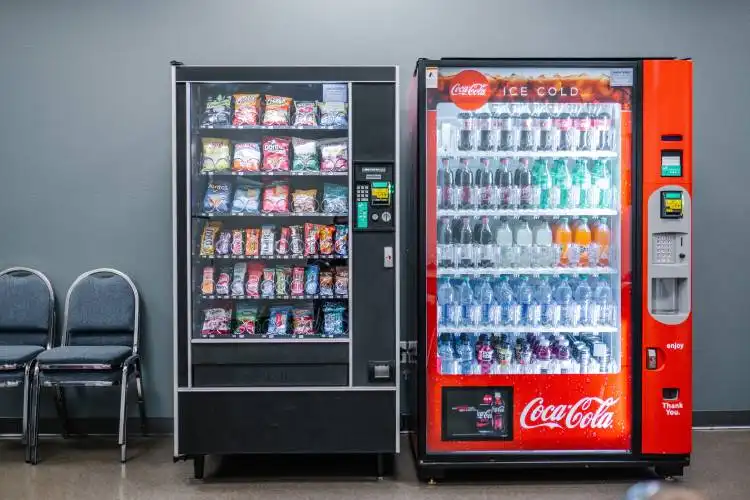Start a Mobile DJ Business
Ignite Your passion: Travel, Groove, and Earn with a Mobile DJ Business
| Updated


MOBILE DJ BUSINESS
Shake up your professional life with a Mobile DJ business, where the world is literally your stage! As a Mobile DJ, you'd be bringing music, entertainment, and a whole lot of fun to events like weddings, corporate parties, birthdays, and more. Instead of working in a fixed location, this business takes you on a fascinating journey from one event to another, keeping your life jazzy and full of surprises. If you're hooked on the beats and can spin magic with your ecstatic music, this dynamic venture is just for you.
Jump to Business Plan
RELATED BUSINESS IDEAS
Browse ALL Rental & Delivery Services Business Ideas
Discover Your Perfect Domain
Unlock the door to your online success with our hand-picked selection of premium domain names. Whether you're starting a new venture or rebranding an existing one, the right domain can set the tone for your digital presence. Browse through our curated list, each with its unique potential to enhance your brand's visibility and credibility.
MOBILE DJ MINI BUSINESS PLAN
This a quick reality check to help you identify the strengths and weaknesses of your business concept before you dive in.
Expected Percent Margin:
- Gross Margin: 50-70%
- Net Profit Margin: 15-30%
Earnings Expectations:
- Daily Earnings: For working days - $200 - $800
- Weekly Earnings: $1,000 - $4,000
- Monthly Earnings: $4,000 - $16,000
- Annual Earnings: $48,000 - $192,000
Actions to Hit Those Numbers:
Equipment Investment:
- Initial Investment: Spend approximately $5,000-$10,000 on quality audio and lighting equipment.
Marketing and Customer Acquisition:
- Social Media: Publish engaging posts about your DJing activities to attract followers and potential clients.
- Networking: Regularly attend industry events with business cards in hand, introduce yourself to event organizers and venue managers.
DJ Service:
- Gigs: Aim to secure 2-3 DJ gigs per week at varying levels (weddings, parties, corporate events, etc).
- Pricing: Price yourself competitively but don't undersell your services. Charge more for larger, higher-end gigs.
Cost Control:
- Travel: Strategically book gigs to minimize gas and maintenance cost on your vehicle.
- Music Library: Continually expand your music library. Utilize music subscription services for cost savings.
Business Operations:
- Hours: Flexible depending on gig times. Evenings and weekends should be expected.
- Partnerships: Foster relationships with event planners and venues for steady booking opportunities.
The actual figures may differ significantly owing to market dynamics, competitive landscape, the DJ's reputation and skill level, and other factors. Remember, the beauty of the DJ business lies in its scalability: if you're doing well, there's always room to expand or increase prices.
NOT WHAT YOU HAD IN MIND? Here are more ideas



Browse ALL Rental & Delivery Services Business Ideas
Grab Your Business Website Name
Before you get caught up in the whirlwind of setting up your business, invest in a domain name. It's a small but significant step that lays the foundation for your brand and makes it easier for customers to find and trust you. Just like you wouldn't build a house without securing the land first, don't build a business without securing your domain name.
"Why? Can't that wait?" Here's why it shouldn't
Step 1: Determine if Mobile DJ Business is Right Endeavor
Breakdown of Startup Expenses
Before starting a mobile DJ business, it is important to understand the startup costs associated with the venture. These costs can include the cost of equipment such as speakers, a laptop, and a mixer, as well as the cost of licensing music. Additionally, you will need to consider the cost of marketing materials, such as business cards and flyers, and any other costs associated with setting up the business. It is important to have a good understanding of the startup costs before beginning the business.
Breakdown of Ongoing Expenses
In addition to the startup costs, there are also ongoing expenses associated with running a mobile DJ business. These expenses can include the cost of licensing music, the cost of maintaining and replacing equipment, and the cost of marketing materials. Additionally, you will need to consider the cost of insurance and any other costs associated with running the business. It is important to have a good understanding of the ongoing expenses before beginning the business.
Examples of Ways to Make Money
There are a variety of ways to make money as a mobile DJ. These can include performing at weddings, parties, and other events, as well as providing music for corporate events and other functions. Additionally, you can offer services such as karaoke, DJ lessons, and other services that can help you to make money. It is important to have a good understanding of the different ways to make money before beginning the business.
Step 2: Name the Business
When deciding on a name for your mobile DJ business, it is important to consider the type of music you will be playing and the type of events you will be playing at. It is also important to consider the target market you are trying to reach. It is best to pick a name that is memorable and easy to spell. Additionally, it is important to make sure the name is not already taken by another business. It is also important to make sure the name is not too long or too complicated.
Once you have decided on a name, it is important to make sure it is available for use. You can do this by checking with the United States Patent and Trademark Office (USPTO) to make sure the name is not already trademarked. Additionally, you can check with the Secretary of State in your state to make sure the name is not already taken by another business. It is also important to make sure the name is not too similar to another business’s name.
Once you have determined that the name is available for use, it is important to make sure the domain name is available. You can do this by searching for the domain name on a domain name registrar website. Additionally, you can check to make sure the name is available on social media platforms such as Facebook, Twitter, and Instagram.
Finally, it is important to make sure the name is easy to remember and easy to spell. You can do this by asking friends and family for their opinion. Additionally, you can ask potential customers for their opinion. This will help you determine if the name is memorable and easy to spell.
Step 3: Obtain Necessary Licenses and Permits
The third step to starting a mobile DJ business is to obtain the necessary licenses and permits. Depending on the state or city, this may include a business license, a sales tax permit, and a permit to operate sound equipment. It is important to research the local laws and regulations to ensure that all necessary permits and licenses are obtained. Additionally, it is important to check with local venues to make sure that they are aware of any special requirements for sound equipment. For example, some venues may require a special permit to operate a sound system. It is also important to check with local fire and safety departments to make sure that all necessary safety regulations are met. Finally, it is important to check with local zoning laws to make sure that the business is allowed to operate in the area.
Step 4: Create a Business Plan
Creating a business plan is an important step in the process of starting a mobile DJ business. A business plan should include a detailed description of the services you plan to offer, the target market you plan to serve, and the strategies you plan to use to reach that market. It should also include a financial plan that outlines the startup costs and ongoing expenses associated with running the business. Additionally, it should include a marketing plan that outlines the strategies you plan to use to promote your business and attract customers. Finally, it should include a timeline of when you plan to launch the business and when you expect to reach profitability.
Step 5: Obtain Licenses and Permits
Before launching a mobile DJ business, it is important to obtain the necessary licenses and permits. Depending on the state and local regulations, this may include a business license, a sales tax permit, and a music license. Additionally, some states may require a special permit for mobile DJs. It is important to research the regulations in your area and obtain the necessary licenses and permits before launching the business.
Step 6: Purchase Equipment
Once you have obtained the necessary licenses and permits, you will need to purchase the necessary equipment for your mobile DJ business. This may include speakers, amplifiers, microphones, turntables, and other audio equipment. Additionally, you may need to purchase lighting equipment, such as fog machines, strobe lights, and lasers. It is important to research the different types of equipment available and purchase the best quality equipment that fits within your budget.
Step 7: Market Your Business
Once you have purchased the necessary equipment, you will need to market your business. This may include creating a website, setting up social media accounts, and creating promotional materials such as flyers and business cards. Additionally, you may want to consider advertising in local newspapers and magazines. You may also want to consider joining local networking groups and attending events to promote your business.
Step 8: Set Prices
Before launching your mobile DJ business, it is important to set prices for your services. You should consider the cost of the equipment and the time it takes to set up and tear down the equipment. Additionally, you should consider the cost of travel and any additional services you offer. It is important to set prices that are competitive and that will allow you to make a profit.
Step 9: Launch Your Business
Once you have obtained the necessary licenses and permits, purchased the necessary equipment, and set prices for your services, you are ready to launch your mobile DJ business. You should create a plan for how you will launch the business, such as hosting an event or offering a promotional discount. Additionally, you should create a plan for how you will manage the business, such as setting up a system for scheduling and billing. Finally, you should create a plan for how you will track your progress and measure your success.
Step 5: Secure Financing
Securing financing for a mobile DJ business is an important step in the process. It can be difficult to secure financing for a business that is just starting out, so it is important to research all of the options available. One option is to apply for a business loan from a bank or other financial institution. This will require a detailed business plan that outlines the business model, projected income, and expenses. It is also important to consider other financing options such as crowdfunding or angel investors. These options can provide the necessary capital to get the business off the ground. Additionally, it is important to consider the costs associated with obtaining financing, such as interest rates and fees. Finally, it is important to ensure that the financing is sufficient to cover all of the startup and ongoing costs associated with the business.
Step 6: Purchase Necessary Equipment
When starting a mobile DJ business, it is important to purchase the necessary equipment. This includes items such as a laptop, a sound system, and a microphone. It is also important to purchase any additional equipment that may be needed, such as lighting, fog machines, and a DJ booth. It is important to research the different types of equipment available and decide which items are necessary for the business. Additionally, it is important to consider the cost of the equipment and budget accordingly. It is also important to purchase quality equipment that will last for many years. Additionally, it is important to consider the size of the equipment and make sure it is easy to transport and set up. Finally, it is important to purchase any additional accessories that may be needed, such as cables and adapters.
Step 7: Market Your Business
Marketing your business is essential for success. You need to create a marketing plan that will help you reach your target audience. You should consider using both online and offline marketing strategies. Online marketing strategies include creating a website, setting up social media accounts, and creating content such as blog posts and videos. Offline marketing strategies include attending networking events, handing out flyers, and advertising in local newspapers. You should also consider using paid advertising such as Google Ads or Facebook Ads. It is important to track your marketing efforts and adjust your strategies as needed.
Step 8: Network and Build Partnerships
Networking and building partnerships is an important part of running a successful mobile DJ business. You should attend industry events and join local music and DJ organizations. You should also reach out to other DJs and music professionals in your area and offer to collaborate on projects. You should also reach out to local venues and offer to provide DJ services. Building relationships with other DJs and music professionals can help you gain more exposure and increase your bookings.
Step 9: Create a Business Plan
Creating a business plan is an important step in starting a mobile DJ business. A business plan should include an executive summary, a description of your services, a market analysis, a financial plan, and a description of your marketing strategy. A business plan will help you stay organized and focused on your goals. It will also help you secure funding from investors or lenders if needed.
Step 8: Network with Other DJs
Networking with other DJs is an important step in starting a successful mobile DJ business. It is important to build relationships with other DJs in the area, as they can provide valuable advice and resources. Additionally, networking with other DJs can help to increase the visibility of your business and help you to gain more clients.
It is important to attend events and conferences related to the mobile DJ industry. These events are a great way to meet other DJs and learn about the latest trends in the industry. Additionally, attending these events can help you to build relationships with other DJs and increase your network.
You can also join online forums and groups related to the mobile DJ industry. These forums and groups are a great way to connect with other DJs and learn about the industry. Additionally, these forums and groups are a great way to get advice from experienced DJs and learn about the latest trends in the industry.
Social media is another great way to network with other DJs. You can join Facebook groups, Twitter chats, and other social media groups related to the mobile DJ industry. These groups are a great way to connect with other DJs and learn about the industry. Additionally, you can use social media to promote your business and increase your visibility.
Finally, you can reach out to other DJs directly. You can contact other DJs in your area and ask them to collaborate on projects or to provide advice. Additionally, you can ask other DJs to refer clients to your business. Reaching out to other DJs directly can help to build relationships and increase your network.
Step 9: Keep Records and Maintain Professionalism
The final step in starting a mobile DJ business is to keep records and maintain professionalism. It is important to keep accurate records of all income and expenses, as well as any contracts and agreements with clients. This will help ensure that the business is run in a professional manner and that taxes are paid correctly. Additionally, it is important to maintain a professional attitude and appearance when dealing with clients. This will help to ensure that clients are satisfied with their experience and that they will be more likely to recommend the business to others. Additionally, it is important to stay up to date on the latest trends in the industry, such as new music and equipment, so that the business can remain competitive. Finally, it is important to stay organized and to keep a schedule of events and bookings in order to ensure that all clients are satisfied.
EXPLORE MORE CATEGORIES
Browse ALL Business Idea Categories
TAKE THE NEXT STEPS










